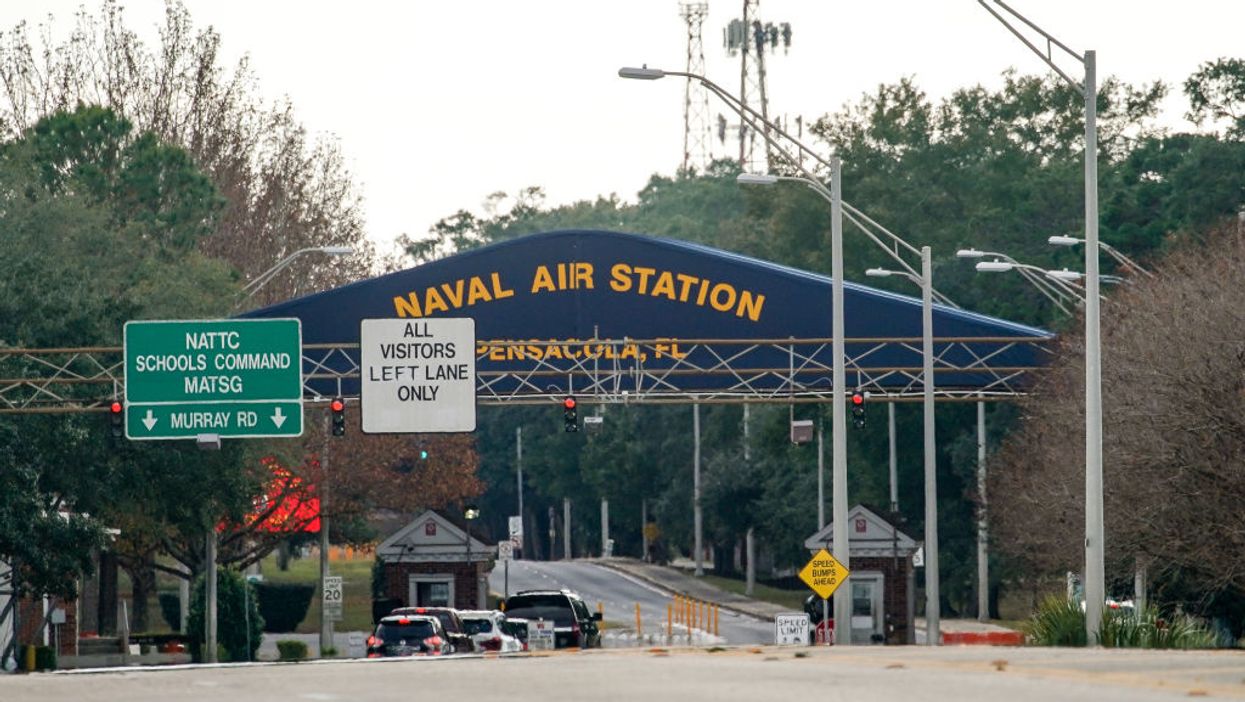
Photo by Josh Brasted/Getty Images

The killer had shared 'plans and tactics' with the terrorist organization
During a news conference Monday, Attorney General William Barr and FBI Director Christopher Wray confirmed that the Pensacola gunman, Mohammed al-Shamrani, had "significant ties" to al-Qaeda in the Arabian Peninsula, known as AQAP.
Wray said that new evidence found on al-Shamrani's phones showed that the deadly attack in December that killed three Americans and injured eight others was "the brutal culmination of years of planning and preparation by a longtime AQAP associate."
The FBI director added that al-Shamrani did not radicalize after arriving in the United States but was radicalized at least as early as 2015 and, in the following years, engaged in consistent communication with top AQAP operatives. One of those operatives was Abdullah al-Maliki, which both Wray and Barr said is now the subject of a counterterrorism operation.
According to Wray, al-Shamrani had shared "plans and tactics" with AQAP, which later claimed credit for the attack. The Associated Press reported that AQAP "has long been considered the global network's most dangerous branch and has attempted to carry out attacks on the U.S. mainland."
WATCH: Attorney General Barr and FBI Director Wray hold a news conference on Pensacola shootingsyoutu.be
On Dec. 6, al-Shamrani opened fire at a Naval Air Station in Pensacola, Florida. The killer was a member of the Saudi military and was in aviation training at the military base. He was killed during the attack by an Escambia County sheriff's deputy.
During the initial stages of the investigation, federal officials were left with little doubt that al-Shamrani was motivated by jihadist ideology, but were unable to access his phones to prove that the attack was a coordinated effort. The Department of Justice sought assistance from Apple in unlocking the encrypted phones, but the tech company denied the request.
Finally, months later, FBI agents were able to gain access to the phones, though neither Wray nor Barr went into specific detail as to how.
"In a combination of skill and determination, the men and women of the FBI have succeeded in accessing the terrorist's two phones, both of which he tried to destroy," Wray said, commending bureau agents.
During the news conference, Barr did not shy away from noting his displeasure with Apple's refusal to cooperate with federal agents, lamenting that it "took over four months and large sums of taxpayer dollars to obtain evidence that should have been easily and quickly accessible when we obtained court orders."